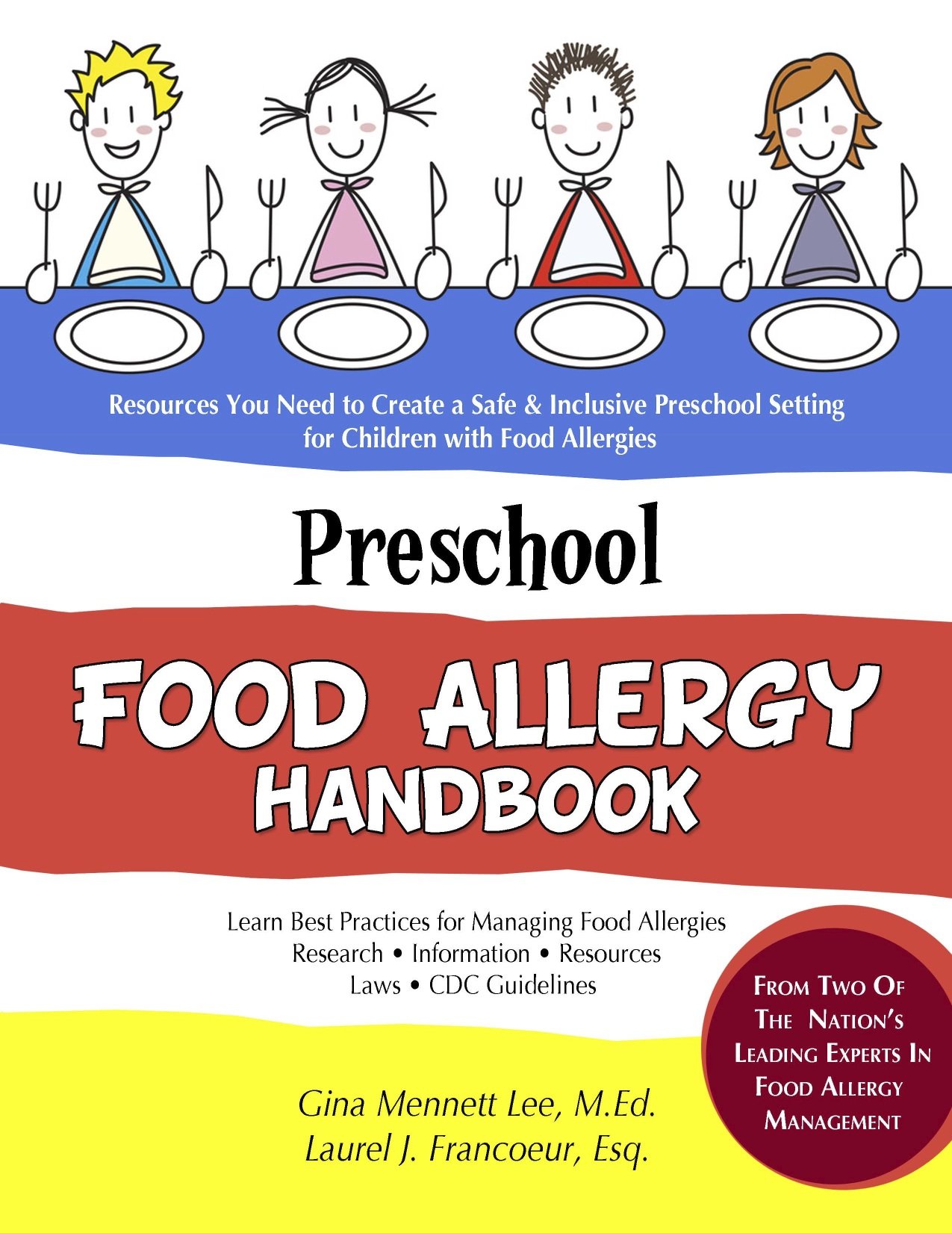By Gina Mennett Lee, M.Ed. FoodAllergyConsulting.com
1: Identify students with food allergies and create a WRITTEN, Individual Plan of Accommodation. This plan should include strategies to prevent exposure to allergens throughout the school day as well as how to respond should a reaction occur.
 2. Train ALL staff to identify symptoms of an allergic reaction and to respond appropriately. If allowed by state and local law, train ALL staff how to administer epinephrine.
2. Train ALL staff to identify symptoms of an allergic reaction and to respond appropriately. If allowed by state and local law, train ALL staff how to administer epinephrine.
(See FREE Food Allergy Training Options for Schools)
3. Have immediate access to epinephrine at all times. Children with food allergies must be supervised by a trained adult at all times.
For more information on how to create a safe and inclusive environment for children with food allergies, please read the Preschool Food Allergy Handbook
.

